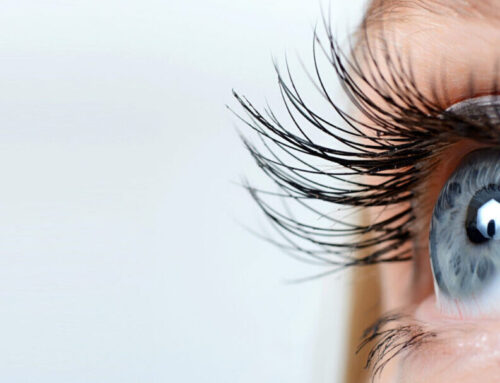Cochlear implants and quality of life
Dr. Ruth Zöhrer studied medicine and has a PhD in biology. Today, she is involved in studies that measure, among other things, how hearing implants affect the quality of life of the CI users.


Dr Ruth Zöhrer worked as a scientist at the Ludwig Boltzmann Institute as well as at renowned universities in Austrialia and the USA, conducting medical research on bones and joints. After that, she was looking for a medical field where scientific findings would directly reflect on the quality of life of users. That´s how she decided to pursue translational research in hearing implants. With her knowledge and experience in the field, she is supporting scientists and clinicians in their academic studies.
I find our work very fulfilling! We can not only extend people´s lives as in the other medical fields, but this technology enables them to live a relatively normal life. This way, we give them better quality of life.
What is quality of life?
That´s a good question! It depends on the perspective. My personal concept of quality of life means doing what is fun. Of course, good health is a prerequisite for this. Good quality of life includes having tasks that give me pleasure and where work-life balance is not neglected. Also, it means maintaining good social contacts, both at work and in my private life. And that’s also what our users want – but to achieve all that, we need unlimited communication skills.
If health is only one aspect of it, why do scientific studies in medicine still refer to quality of life?
The term quality of life has been used since the 1920s in the politics, but in medicine it has only been a factor for the last 50-60 years. It has been found that conventional measurements (e.g. in our field audiograms) do not always reflect how patients are really doing. Despite good results, they may feel that their hearing or understanding are not enough for good communication. That´s why it is important to always clarify these measurements further.
When it comes to quality of life, it is important not to focus on the disease or a condition that needs improvement. Quality of life must always be looked at in a broader and differentiated way. If someone has hearing loss and can hear again, he or she will certainly answer that their quality of life improved. But we want to see an effect of an intervention when we take all dimensions of quality of life into account. However, this is different for everyone: an athlete would be extremely unhappy if he or she were no longer active, had to stop doing sports, take a break or significantly cut back. For me personally, immobility would be very bad as I would not be able to spend time in nature as easily.
Is quality of life relevant from a medical point of view?
Sure! After all, the most important thing is how the patient feels overall, also emotionally. It happens that a patient complains, but the doctor cannot immediately find the cause of it. A good doctor will always question why his objective measurements do not match the patient´s subjective feeling.
One can also look at the quality of life from the economic aspect. If someone is happy, with a subjectively high quality of life, he/she is also likely to spend more money and will cost the health care system less. There are a wide variety of measurement factors that can be converted into economic models and thus provide cost-benefit calculations.
To what extent do such economic considerations have an impact on our health care system?
Based on the quality of life, a kind of cost-benefit calculation for a certain medical treatments can be made. Each year gained with a certain level of quality of life is given a numerical value.
One example would be the QALY. The abbreviation stands for “quality-adjusted life-year”. The number of life years which can be expected after an intervention is multiplied by the quality of these life-years (the quality given as between zero and one). If a tumor patient gains three months of life, the QALY is less than if a six-month-old baby has his entire life ahead of him. The cost-benefit calculation for an expensive cancer therapy is lower than the one-time cost of cochlear implantation for an infant.
Is it then even possible to measure quality of life?
In short yes, but we must be cautious. Especially when it comes to studies in the field of hearing implants, we have to define what we want to know in advance.
For example, there are questionnaires that specifically concentrate on the underlying condition of a patient and thus include many specific questions about hearing. I would assume that in 99.9 percent of patients, cochlear implant or another hearing implant brings improvement in hearing. That´s why I think these questionnaires don’t really make sense! My recommendation is to always ask a patient about their quality of life in general. And I would use questions about hearing in addition to that.
Unfortunately, many questionnaires are not translated into different languages. To compare the data internationally, we would need one questionnaire translated into as many languages as possible!
Is there a questionnaire that measures quality of life in a comprehensive and internationally comparable way?
There are a few, but my favorite one is the AqoL from Australia (stands for Assessment of Quality of Life). In my opinion, it covers all dimensions of life: from hearing and other sensory impressions, though questions about pain and mobility to social interactions.
Social interactions include not only friends, but also sexual interactions. At the clinic, people often have scruples asking that… But this is an important area overall. It consists of 34 questions and reflects the quality of life regardless of illnesses or impairments. This means you can compare the quality of life of people that have different conditions.
By asking about the situation before and after the intervention, e.g. a cochlear implantation, one can see the real impact of it. The evaluation is from 0 to 1, but zero would be equated to death, and no one is ever that bad! “One” would mean completely healthy and happy, but this is hard to reach even in completely healthy respondents.
One can compare the results of people with hearing impairment and deafness to those who use a hearing system, but also to compare them to completely healthy people. Afterwards, the results can be further divided into age groups, gender groups etc.
How does quality of life evolve over the course of a lifetime?
Younger people expect a lot from life, but they are also quite satisfied. People in the age group 40-60 also have high quality of life. However, problems accumulate with age. This includes health problems, as well as limited mobility and reduced social interactions, which also has to do with increasing hearing problems.
When we talk to CI users, they usually rate the areas communication and social interactions very poorly for the period before the surgery. After surgery, this score jumps, often above those of people with normal hearing. This means that the period without hearing had such a strong impact on their lives that quality of life is even more valued after the activation. However, over a longer period, one can notice that the satisfaction goes slightly down again. They get used to hearing and apparently, many users forget how bad it was without hearing.
This typical behavioral pattern is called Kano model or cell phone effect. When a high expectation is met, satisfaction jumps but then levels off. For example, when you buy a new smartphone, you are at the beginning excited about all new features. But within a short time, you get used to it.
Then, how meaningful can such subjective questionnaires be at all?
Well, they are meaningful enough, as quality of life is now considered an independent health goal and it is an important parameter for assessing an effectiveness of a therapeutic intervention. It is important to note that the output of a questionnaire depends on the respective state of mind on that day. Of course, one will answer differently if narrowly escaping an accident or coming from the dentist still in pain or if he or she won the lottery right before answering. However, we can say that quality of life is becoming more and more established as an additional criterion for a successful therapy.
Personally, I believe that the expectations of life strongly influence the quality of life. My motto is: appreciation and attention for the things I have and how I treat other people, in order to increase my satisfaction and therefore my quality of life.






